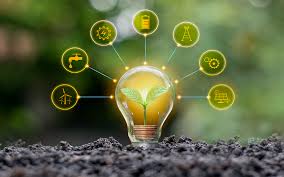Exploring the Latest Technologies: A Glimpse into the Future
The world of technology is ever-evolving, with innovations emerging at an unprecedented pace. From artificial intelligence to quantum computing, the latest technologies are reshaping industries and redefining possibilities. This article explores some of the most exciting technological advancements that are currently making waves.
Artificial Intelligence and Machine Learning
Artificial intelligence (AI) continues to be at the forefront of technological innovation. With machine learning algorithms becoming more sophisticated, AI systems are now capable of performing tasks that were once thought to require human intelligence. From voice assistants like Alexa and Siri to advanced data analytics in healthcare, AI is transforming how we interact with technology.
Quantum Computing
Quantum computing promises to revolutionise computing by solving complex problems far beyond the reach of classical computers. Companies like Google and IBM are making significant strides in this field, with quantum processors that can perform calculations at speeds previously unimaginable. Although still in its early stages, quantum computing has the potential to impact areas such as cryptography, material science, and drug discovery.
5G Connectivity
The rollout of 5G networks is set to revolutionise mobile connectivity by providing faster internet speeds and more reliable connections. This next-generation network supports a wide range of applications, from enhanced mobile broadband to the Internet of Things (IoT). As 5G becomes more widespread, it will enable new technologies such as autonomous vehicles and smart cities.
Blockchain Technology
Originally developed as the underlying technology for cryptocurrencies like Bitcoin, blockchain has found numerous applications beyond digital currencies. Its decentralised nature ensures transparency and security in transactions, making it ideal for industries such as finance, supply chain management, and healthcare. As blockchain technology matures, its potential uses continue to expand.
Sustainable Tech Innovations
With growing concerns about climate change and environmental sustainability, technology is playing a crucial role in developing solutions for a greener future. Innovations such as renewable energy technologies, electric vehicles, and smart grids are helping reduce carbon footprints while promoting sustainable practices across various sectors.
The Future Awaits
The rapid advancement of these technologies signifies a future filled with possibilities. As these innovations continue to develop and integrate into our daily lives, they will undoubtedly bring about transformative changes across industries worldwide. Staying informed about these developments is essential for anyone looking to understand or participate in shaping the future landscape of technology.
Exploring the Latest Technological Advancements: AI, Quantum Computing, 5G, and More
- What are the latest technological advancements in AI?
- How is quantum computing revolutionising traditional computing?
- What impact will 5G connectivity have on mobile technology?
- How can blockchain technology be applied beyond cryptocurrencies?
- What are some examples of sustainable tech innovations for a greener future?
- Which industries are benefiting the most from artificial intelligence and machine learning?
- What security concerns arise with the adoption of new technologies like IoT and smart devices?
- How are emerging technologies shaping the future of work and employment?
What are the latest technological advancements in AI?
Artificial Intelligence (AI) has seen remarkable advancements in recent years, pushing the boundaries of what machines can achieve. One of the most significant developments is the rise of generative AI models, such as OpenAI’s GPT series, which can generate human-like text and even create art. These models are being used across various industries to enhance customer service, automate content creation, and assist in complex problem-solving. Another advancement is in the realm of natural language processing (NLP), where AI systems are now capable of understanding and responding to human language with unprecedented accuracy. Additionally, AI-driven personalisation is becoming increasingly sophisticated, allowing businesses to tailor their services and products to individual preferences with great precision. The integration of AI into robotics has also progressed, enabling robots to perform intricate tasks with a high degree of autonomy in sectors like manufacturing and healthcare. These advancements are just a glimpse into the transformative potential that AI holds for the future.
How is quantum computing revolutionising traditional computing?
Quantum computing is revolutionising traditional computing by leveraging the principles of quantum mechanics to perform computations at speeds and scales that are unattainable with classical computers. Unlike classical bits, which can only exist in a state of 0 or 1, quantum bits (qubits) can exist in multiple states simultaneously due to the phenomenon of superposition. This enables quantum computers to process vast amounts of data in parallel, leading to exponential increases in computational power. Additionally, quantum computers can leverage entanglement, where the state of one qubit is dependent on the state of another, further enhancing their processing capabilities. As a result, quantum computing has the potential to solve complex problems that are currently intractable for classical computers, such as optimisation challenges, cryptography, and simulation of quantum systems. The transformative impact of quantum computing on traditional computing paradigms is poised to reshape industries and drive innovation in ways previously thought impossible.
What impact will 5G connectivity have on mobile technology?
The widespread adoption of 5G connectivity is set to have a profound impact on mobile technology. With its significantly faster speeds and lower latency compared to previous generations, 5G will enable a whole new range of capabilities and applications for mobile devices. Users can expect smoother streaming, quicker downloads, and improved overall performance when using their smartphones and other connected devices. Additionally, 5G will pave the way for innovations in areas such as augmented reality (AR), virtual reality (VR), Internet of Things (IoT), autonomous vehicles, and smart cities. The enhanced connectivity provided by 5G networks will not only transform how we use our mobile devices but also revolutionise the way we interact with technology in our daily lives.
How can blockchain technology be applied beyond cryptocurrencies?
Blockchain technology, originally known for its association with cryptocurrencies, has evolved to offer a wide array of applications beyond digital currencies. Its decentralised and transparent nature makes it ideal for various industries seeking secure and efficient solutions. Beyond cryptocurrencies, blockchain technology can be applied in sectors such as supply chain management to enhance transparency and traceability, in healthcare for secure sharing of patient data, in voting systems to ensure tamper-proof elections, and in legal contracts to automate and enforce agreements. The immutability and trustworthiness of blockchain technology make it a versatile tool with the potential to revolutionise how data is managed and transactions are conducted across different domains.
What are some examples of sustainable tech innovations for a greener future?
In the quest for a greener future, sustainable tech innovations are playing a pivotal role in addressing environmental challenges. Examples of such innovations include renewable energy technologies like solar panels and wind turbines, which harness natural resources to generate clean electricity. Electric vehicles (EVs) are another notable advancement, offering a sustainable alternative to traditional petrol and diesel cars by reducing greenhouse gas emissions. Smart grid systems enable efficient energy distribution and management, optimising power usage and reducing waste. Additionally, green building technologies focus on constructing eco-friendly structures that minimise energy consumption and promote sustainability. These sustainable tech innovations not only help mitigate environmental impact but also pave the way for a more sustainable and environmentally conscious future.
Which industries are benefiting the most from artificial intelligence and machine learning?
Artificial intelligence (AI) and machine learning are revolutionising a multitude of industries, with some benefiting more significantly than others. The healthcare sector is experiencing substantial advancements, as AI aids in diagnostics, personalised medicine, and predictive analytics, ultimately improving patient outcomes. In finance, AI-driven algorithms enhance fraud detection, risk management, and automated trading systems. The retail industry is leveraging AI for personalised customer experiences through recommendation engines and inventory management optimisation. The automotive sector benefits from AI in the development of autonomous vehicles and advanced driver-assistance systems. Additionally, manufacturing is seeing increased efficiency through predictive maintenance and quality control powered by machine learning algorithms. These technologies are not only enhancing operational capabilities but also driving innovation across these sectors.
What security concerns arise with the adoption of new technologies like IoT and smart devices?
The adoption of new technologies such as Internet of Things (IoT) and smart devices brings about various security concerns that need to be addressed. One major issue is the vulnerability of interconnected devices to cyber attacks, as hackers can exploit weak security protocols to gain access to sensitive data or control systems remotely. Privacy risks also arise due to the vast amount of personal information collected by IoT devices, raising concerns about data breaches and potential misuse. Moreover, the lack of standardised security measures across different IoT platforms poses a challenge in ensuring consistent protection against threats. As these technologies become more integrated into our daily lives, it is crucial for manufacturers and users alike to prioritise cybersecurity measures to safeguard against potential risks and vulnerabilities.
How are emerging technologies shaping the future of work and employment?
Emerging technologies are fundamentally reshaping the future of work and employment in profound ways. Automation, artificial intelligence, and robotics are streamlining processes, increasing efficiency, and transforming traditional job roles. While these advancements hold the potential to create new opportunities and enhance productivity, they also raise concerns about job displacement and the need for upskilling in a rapidly changing digital landscape. The integration of emerging technologies into various industries is driving a shift towards more flexible work arrangements, remote collaboration, and the emergence of entirely new job sectors. Adapting to these technological changes is essential for individuals and organisations alike to thrive in the evolving work environment of tomorrow.



